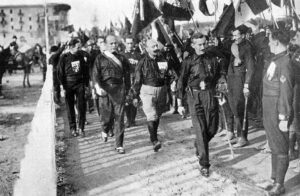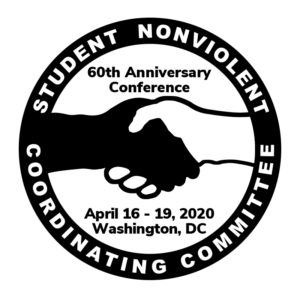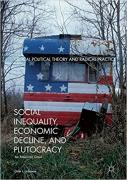
Martin Oppenheimer discusses the corporatist character of historical fascism and the importance of a left alternative vision to counter fascist threats today.
MARTIN OPPENHEIMER is professor emeritus of sociology, Rutgers University. His latest book is The Hate Handbook (Lexington).

Martin Oppenheimer discusses the corporatist character of historical fascism and the importance of a left alternative vision to counter fascist threats today.

The Student Nonviolent Coordinating Committee began as an organization of students from black colleges in the South to integrate lunch counters that refused service to blacks. The tactic they used was the nonviolent direct action sit-in. What began . . .
Social Inequality is not for the faint-hearted. It covers the major political-economic issues of our time, from the structural changes in the economics of capitalism, to class structure, the imperialist state, and the distortions of capitalist culture. The author, a veteran scholar-activist of the New Left generation who now lives in Costa Rica,1 ends with a plea for resistance to our oligarchic “hegemon” and suggests a series of tactics to help us on the road.

Dale L. Johnson. Social Inequality, Economic Decline, and Plutocracy: An American Crisis. Palgrave Macmillan, 2017. 240 pp. Index, Appendix. $159
Social Inequality is not for the faint-hearted. It covers the major political-economic issues of our time, from the structural changes in the economics of capitalism, to class structure, the imperialist state, and the distortions of capitalist culture. The author, a veteran scholar-activist of the New Left generation who now lives in Costa Rica[1], ends with a plea for resistance to our oligarchic “hegemon” and suggests a series of tactics to help us on the road.

The Occupy movement and the Bernie Sanders campaign spotlighted once again the fact that a fairly small number of very rich people dominate the major economic and political institutions of the country.
The godfather of macro-level power structure research in the United States was the sociologist C. Wright Mills, author of The Power Elite (1956).
 Jimmie Lee Jackson was shot by an Alabama State Trooper in Marion, Ala., on Feb. 26, 1965, following a civil rights march. He died two days later. This killing sparked the Selma marches depicted in the now-famous film (the Jackson shooting is shown with a slight change in locale).
Jimmie Lee Jackson was shot by an Alabama State Trooper in Marion, Ala., on Feb. 26, 1965, following a civil rights march. He died two days later. This killing sparked the Selma marches depicted in the now-famous film (the Jackson shooting is shown with a slight change in locale).
Sit-ins at lunch counters by black students began in Greensboro, North Carolina, on February 1, 1960. Blacks had traditionally not been served there or anywhere in the South at that time. Within a week the sit-ins spread to Durham and Winston-Salem. Eleven of the first sit-ins were within 100 miles of Greensboro. After many arrests, and assaults by white hoodlums, on July 25 all Greensboro stores targeted by the sit-ins agreed to serve blacks on an equal basis.
The Student Nonviolent Coordinating Committee (SNCC, or "Snick") came out of the sit-in movement that began on Feb. 1, 1960 in Greensboro, N.C. Its founding convention was at Shaw University in Raleigh, N.C. April 15-17 that year. 200-plus-delegates representing student civil rights organizations at 52 colleges and high schools attended.
IMMIGRATION HAS BECOME THE MOST DIVISIVE ISSUE in domestic American politics since civil rights. Not for the first time in American history, immigrants have become scapegoats for many of the real problems of America's middle and working classes.
[Note: The first two letters below appear in New Politics no. 45. Further correspondence is available on the web only. Additional comments are welcome; please submit to the editors.]